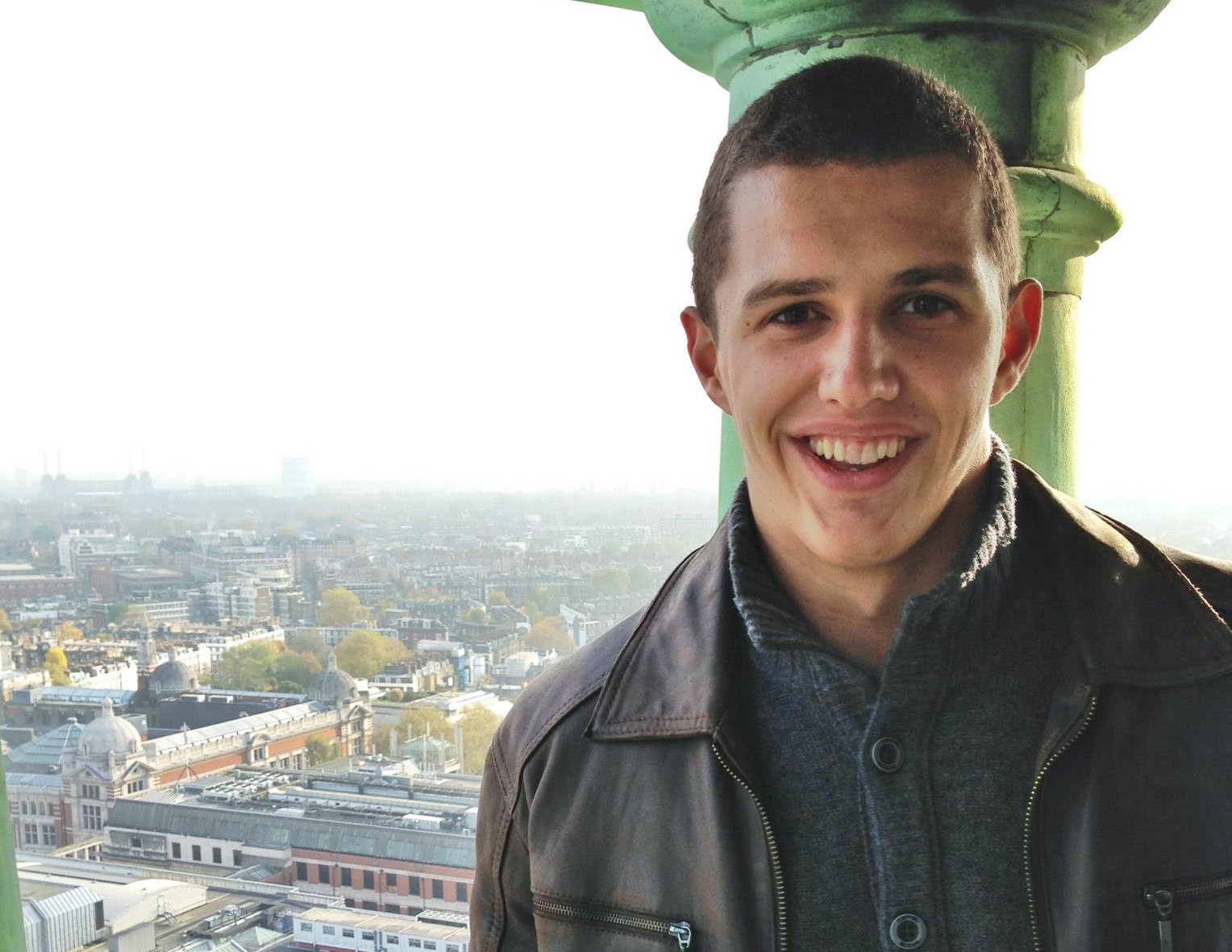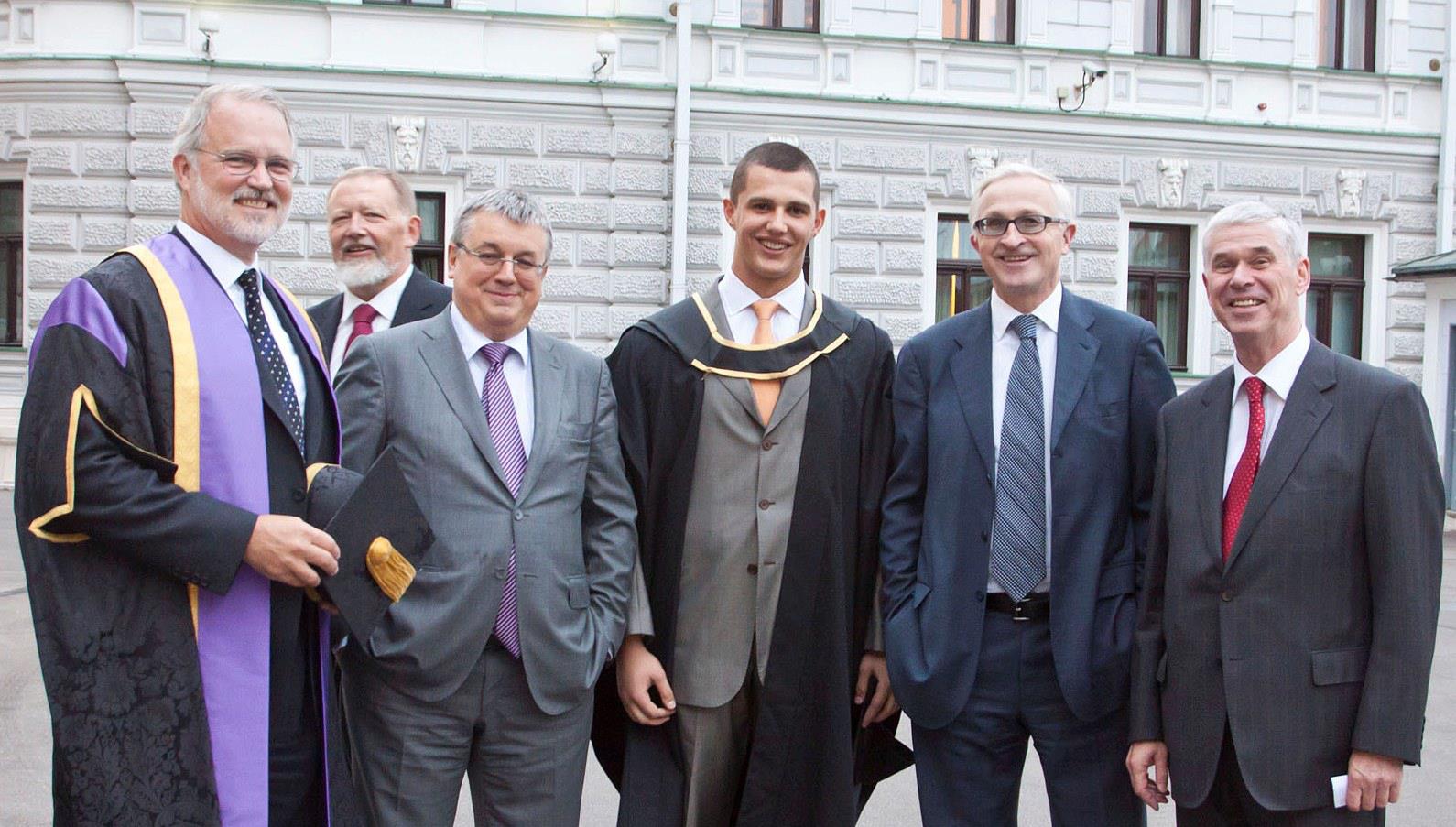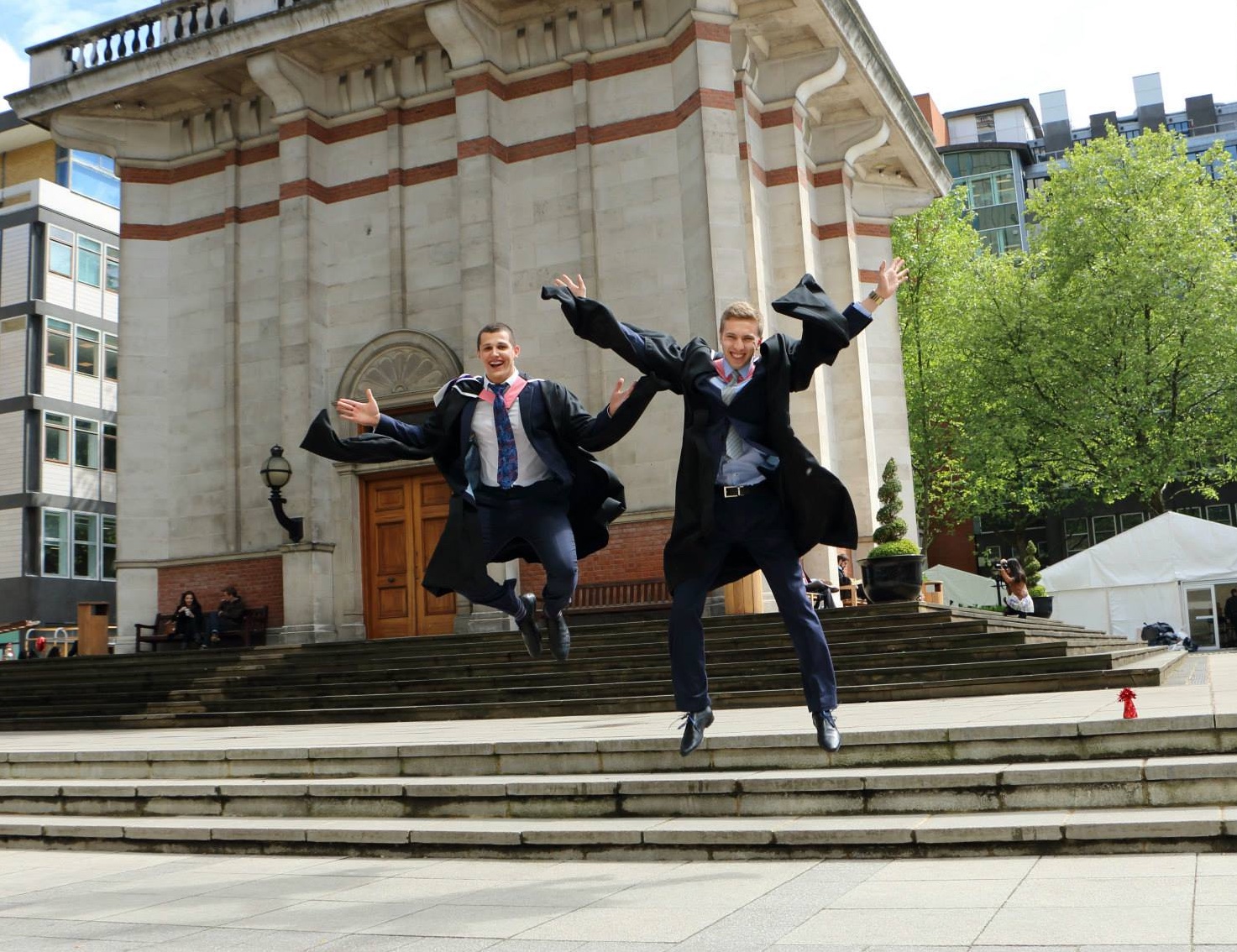"HSE is Like a Huge Machine for Generating Passion for New Subjects"

HSE ICEF graduate Yaroslav Kolodyazhnyy left investment industry for IT and is currently running Corporate Department projects at Yandex office in Dubai. In this interview with Success Builder, Yaroslav shares why he thinks it’s wise for students to network, why job search strategies can fail, and what project managers are responsible for at Yandex.
How did you decide where you wanted to study? Why did you choose HSE and its International College of Economics and Finance?
I graduated from a secondary school in Volgograd. Despite its strong reputation, I however never heard of any of its graduates enrolling in Moscow-based universities who could share their experience with me. Therefore, I mostly relied on public sources, university rankings and my intuition. Once during our stay in Moscow, I and my parents happened to walk by HSE campus in Myasnitskaya Street and decided to talk to its admission counsellors. We were introduced to HSE’s faculties which included ICEF and its double-degree programme. This was how I put HSE on my personal shortlist. My choice of subjects in the Unified State Exam allowed admission to a certain number of universities with similar admission requirements, so I applied quite a number of them – HSE, MGIMO, Plekhanov Academy of Economics, and Financial University.

To improve my chances of being admitted, I decided to compete in HSE Economics Olympiad for high school students. My school didn’t teach economics, so I failed. But I had excellent English skills, which made ICEF my best fit choice. Being taught by international faculty of experts, and according to the Western standards, sounded more than promising. Another thing I was attracted by was ICEF’s range of majors, so I soon made ICEF my number one choice. There was an admission interview to pass, designed to identify applicants’ level of mathematics and English skills. The charismatic Jeffrey Lokshin (he no longer works at ICEF), beautiful classrooms, leather sofas, foreign speech – everything inspired the anticipation of a new exciting life. I think my chosen degree programme was the best available in Russia at the time.
What effects has HSE had on you in terms of growing as a person?
Tremendous ones. I owe the pathway my life has followed until now to HSE. The first thing I noticed when I became its student was how enthusiastic teachers were about their work. For them, teaching was a pleasure, not an obligation. Two states haunted me in my first year – fear and hunger. Knowing that I didn’t have enough knowledge from school, I feared I might not be able to study hard enough to stay at the top of the rating. I was hungry for knowledge. There were so many things to be explored that I decided to learn extra by attending seminars for other groups and office hours.
HSE is like a huge machine for generating passion for new subjects. When it comes to skills it gives its students, I can safely say HSE's bachelor's degree is one of the most outstanding in Europe and maybe the entire world. HSE owes its good reputation to quality teaching, especially of exact sciences which are pivotal in economic studies.
I view top education as the sum total of hard skills, soft skills, and social adjustment
I found all the three components in ICEF and HSE’s other faculties. When communicating with people from other faculties, I didn’t feel my level of training differed much from theirs. This explains why HSE graduates enjoy diverse career options. Their excellent knowledge of statistics and mathematics is complemented with versatility, ability to listen, provide sound arguments and reason even with those who have more influence as experts. When your school has a stimulating environment that cultivates these qualities, you develop the sense of maturity and responsibility as early as your first year.
Was it difficult to study economics, especially given how limited your previous knowledge of it was?
This question is best answered by numbers. I ranked 56th among 151 students after our first examination session and moved up to the top twenty by the end of year one. I might have put more effort, true, than those who did preparatory courses, but before we approached year three our progress rates evened up. The programme has the logic that allows all students – economics contest winners and those with a background in humanities – to perform nearly equally well. Besides, I am ambitious and welcome challenging tasks.
What prompted the decision to do a master’s and continue education? Why did you choose London?
It was prompted by the need to have the qualities recruiters are looking for in candidates. Alongside with skillsets, employers look at university brand. I already had one strong brand name on my resume, as well as international diploma. That part was fine. But the opportunity to study in another country and experience its culture promised a cardinal upgrade, as well as pathways that seemed inaccessible before. When you find yourself immersed in a new culture, your perception of what’s normal and what’s not changes, as do previous habits. Your whole notion of values and behavioral patterns changes, too.

For me, the most important thing was the opportunity to broaden my horizons and climb the social ladder – that’s exactly what my master’s programme had provided me with. I wanted value for money and was looking for a degree that would give maximum applied knowledge. Imperial College London turned out the right place for making the most of one-year studies. It offered excellent courses in exact sciences and had leveled up my knowledge of social sciences. I had truly remarkable teachers – our M&A course teacher was Bob Stefanowski, the former leader of General Electric, who served as CFO at UBS Investment Bank at the time and is presently running for Governor of Connecticut. All the lecturers had impressive qualifications, and Imperial College London’s water polo team was definitely the cherry on the cake.
Were you able to network at career events as a master’s student in London?
It isn’t easy to network abroad when you are one of more than 200 students in the class. There was a whole range of career activities at Imperial College London, but I wasn’t looking to get a job London. I found one in Russia and went home after studying. It was 2013, the UK's GDP fell 0.5%, while Russia's one made a 3% to 4% increase – another contributing factor.
Do I still have contacts from the people I studied together with? I do. I made a lot of friends I know I can turn to if I should need a job or a partner, or friendly advice.
Coping with challenges together makes the bond of student friendship stronger
One common challenge faced by all students is job search. It is useful to keep in touch with people who already entered the workforce and can be your links to the professional community. I see Russian students’ career readiness increase year on year. The students of today seem to be much more savvy than my generation. You can see it by the way they come across at job interviews, the qualities they demonstrate and the way they communicate. This is obviously the result of good performance of HSE’s many clubs and societies, which bring students together for a common action and success. HSE is in this sense very much like Western universities with long-established culture of networking.
What was your first job experience like?
My internship at Oliver Wyman was followed by a full-time offer in Moscow. I knew exactly what to except from working there after completing my master’s. Looking back, I realize my job search strategy wasn’t the right one: my goal was to get as many offers as possible, so I applied nearly all employers there were to apply. I should have been more focused instead, and if I had been wiser I would have targeted in the first place those I thought were my best fits. I should have used my opportunity to go to coffee chats to meet companies and present myself to them, as is the practice abroad. Now, experience is not my number one requirement to candidates for entry-level jobs, fresh graduates are just the right fit.
My later experience suggests that the most important part of a job interview, that can either save or ruin it all, is the last five minutes when candidates are asked to ask their questions. The questions that they ask can tell a lot about their value systems and ability to break away from constants that their universities had set for them. Many students choose to follow tracks advertised to them by companies that come on campus without first evaluating their personal strengths – and many could probably do better than keep to the beaten track, I think.

My career decision-making was through self-awareness. I asked myself where I wanted to be. I tried public markets and consulting before I realized I wanted to be in M&A. My team seemed to be satisfied with my performance, I seemed to have found the right career.
Your career experience is interesting in that you have worked for both privately run and state-owned companies, Rosneft and RDIF. How has your international education benefitted you career-wise?
Rosneft ran a lot of international projects at the time I worked there, despite its bureaucratic excess and decision-making that seemed rather inconsistent at times. I carried out my first transaction – valued at tens of millions of dollars, a small amount according to Rosneft’s standards – at the age of 23. My team had some valuable professionals. One of them earned his MBA from LBS, others studied in Germany and France and went abroad for master’s studies, etc.
M&A experts with international experience were worth their weight in gold
My experience was interesting in that we were a small M&A team put on difficult projects. I got the knack of things people normally learn after five or six years in this industry very early. And I had the opportunity to take on a leadership role, although it came with burden of bureaucracy and hazards of a giant state corporation.
A while later I joined the Russian Direct Investment Fund, where things were a little easier on the bureaucracy side. There were many things that had to be started from scratch, and my role there involved not only project structuring, but also selling to co-investors who came from various markets and business cultures. My previous experience in international communication came very much in handy, as well as my respect of other people’s values. The fact was that at RDFI every ruble of investment into national economy generated some 9 rubles as co-investing. My job was therefore to first explain to companies why their valuation should be lower and then explain to co-investors why the deal can profit them. This wearing two hats at once can give your skills a real boost, but the pressure is sometimes too high to be sustained for long.
Why did you decide to join Yandex? Wasn’t that a way too radical a step?
M&A deals were rare in IT sector at the time I joined it. IT companies’ M&A teams were small: Yandex, for example, had only four people to run its M&A transactions. It now has fourteen. The IT industry was, and still is, on the rise in Russia, so it was interesting for me to learn its ins and outs. Yandex has built itself a cool brand. Working there allowed me to see projects unfold in various parts of the ecosystem. My joining Yandex coincided with upsurge in M&As in IT companies – I was on projects in AdTech, FoodTech, FinTech, e-commerce, software, ride-hailing, delivery, autonomous driving, among others. Although my role did not require in-depth understanding of technology, I gradually acquired new experience and adopted new approaches. One final note: at Yandex you should at all times stay result-oriented. You need to have the required hard skills and be able to manage large-scale processes and handle different types of personalities.
What are your current responsibilities as a project manager?
In January 2022, I was appointed head of M&A department in mobility segment – self-driving cars, taxis, car sharing, and logistics. Some of our projects deal also with acquisition of companies, sale of assets, and creation of joint ventures. The job of an M&A team is to be the think tank for comprehensive support of the transaction, which involves evaluation and analysis, preparation of documentation and materials, and further signing of agreements.
About Yaroslav:
Yaroslav Kolodyazhnyy earned his bachelor’s from ICEF in 2012.
In 2013, Yaroslav completed his master’s degree with honours at Imperial College London and interned at Oliver Wyman as a consultant.
The period between 2014 and 2016 saw him on the post of M&A analyst at Rosneft, and the one between 2016 and 2017 at RDIF as an investment analyst.
In 2017, Yaroslav joined M&A and Corporate Development at Yandex as a senior analyst and moved to the company’s office in Dubai in 2022, where he serves as project manager.
This line of work involves a lot of interaction with counterparties and internal teams. The biggest challenge of working with M&A deals is that they require you to be able to build trust with businesses from the very beginning. You need to know how you can add value to the company and produce a sound strategy. My current job involves structuring a deal at all its stages from start to end. Sealing isn’t the end stage, what happens next is product/business integration as per deal structure and settlement scheme. M&A team plays an important role within a company: we help businesses to look at themselves from the outside.